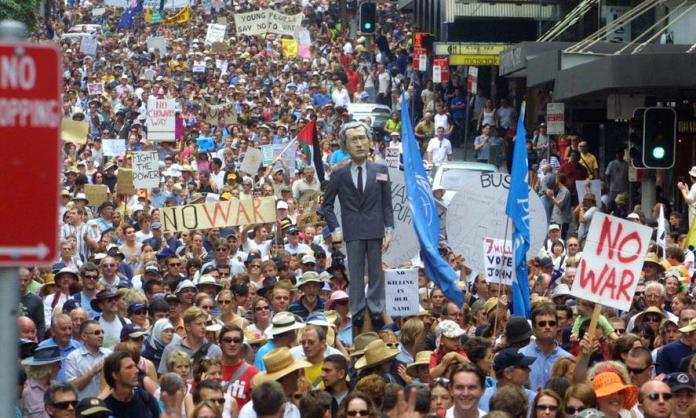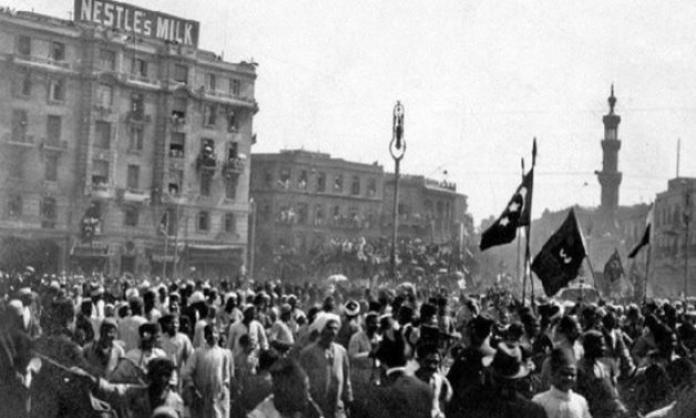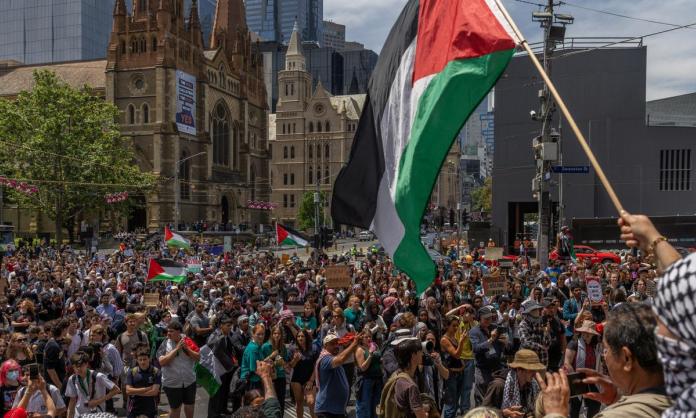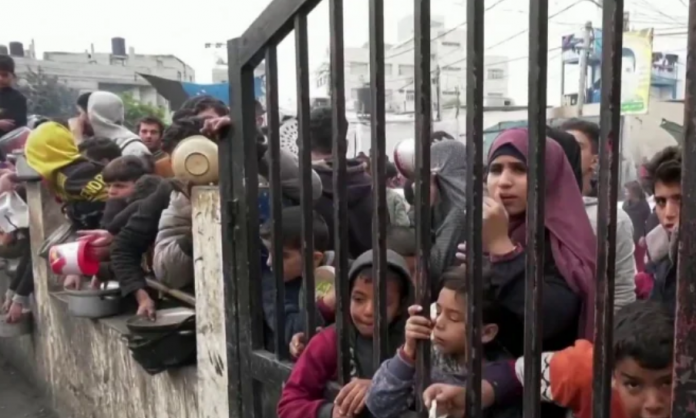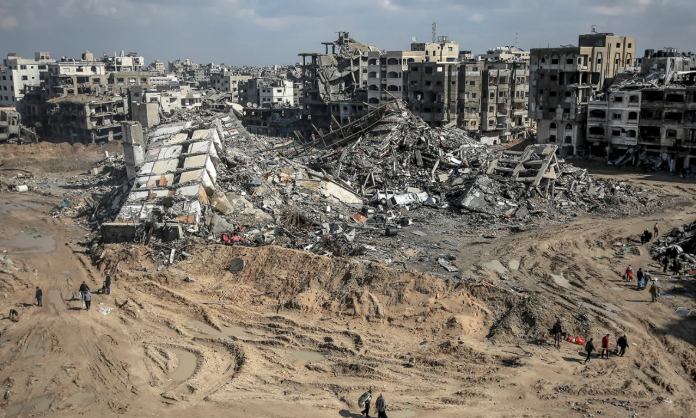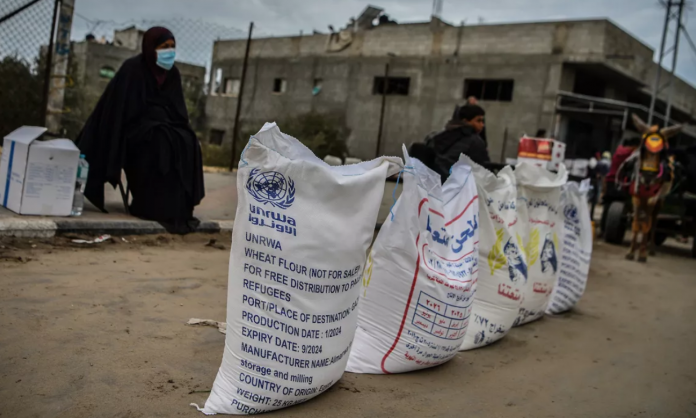Twenty years ago, on the weekend of 15-16 February 2003, the biggest global protest event in history took place. Around the world, an estimated 12 to 14 million people took to the streets, aiming to stop the US-led invasion of Iraq.
In London, a massive 1.5 to 2 million people took part. In Australia, up to 200,000 marched in Melbourne and 250,000 in Sydney. Globally, marches took place in more than 600 cities. It was a glorious sight. Amid such immense crowds, it was hard not to share in an exhilarating feeling of hope that surely, faced with this tidal wave of opposition, leaders previously bent on war might have a change of heart.
That gave them too much credit. Instead of listening to protesters’ demands, the leaders of the main countries involved—including US President George W. Bush, British Prime Minister Tony Blair and Australian John Howard—dismissed them and beat the war drums louder. In this they were aided by a credulous (and in some cases complicit) media, which uncritically broadcast all the claims, subsequently revealed to have been fabrications, used to justify the invasion.
It wasn’t just the Murdoch empire, but it often led the charge. Melbourne’s Herald Sun cartoonist Mark Knight depicted those protesting against the war as appeasers, marching in formation past a podium on which Iraqi dictator Saddam Hussein stood saluting them. Writing in the Australian on 13 March, a week before the invasion, foreign affairs correspondent Greg Sheridan proclaimed that “no serious figure in the debate anywhere believes Iraq does not have” weapons of mass destruction (WMDs).
In a way, he was right. As Jeff Sparrow put it in a 2017 piece for the Guardian, “In 2002 and 2003, journalistic ‘seriousness’ over Iraq was defined by participation in the feedback loop between pro-war reporters and the pro-war politicians, who leaned upon each other like drunks at closing time, repeating and amplifying the (largely untrue) claims of the Bush and Blair administrations”.
When the invasion was launched on 20 March, we took to the streets once again. But by then it was too late, and people felt it. Our numbers were much smaller. At subsequent events, as the war and occupation dragged on, they dwindled further. The brief moment of hope many felt on that one weekend in February had gone—extinguished by the knowledge that despite having mobilised the largest number of people in a protest movement in history, we had lost, and the warmongers had won.
In the early stages of the invasion, the pro-war camp was triumphant. On 1 May 2003, the US even staged a kind of victory rally, in which George W. Bush spoke to a crowd of sailors aboard the USS Abraham Lincoln below an enormous banner reading “MISSION ACCOMPLISHED”. “Major combat operations in Iraq have ended”, he boasted. “In the battle of Iraq, the United States and our allies have prevailed.”
All those who marched should nevertheless be proud of having made a stand. As the months went by, it became ever clearer that we were right, and all those “serious figures” in politics and the media who supported the war were wrong. There were no WMDs in Iraq. There was no “imminent threat” of an attack on Western countries. The invasion didn’t “liberate” Iraqis and “bring democracy” to the Middle East. It brought violent death to hundreds of thousands of people. It brought unjust detention and torture to untold thousands more. It reduced Iraq to rubble and so profoundly destabilised the country and the region that it is still yet to fully recover.
What is there to learn for next time? First, that there will be one. War is the inevitable outgrowth of the competitive dynamics of capitalism, and the Australian government is among the most violently inclined and conflict-ready on Earth. Just in the last week, a government official refused to either confirm or deny if nuclear-capable US bombers stationed in Australia are armed with the weapons. The war drums are beating again, and they’re leading us down a path to military confrontation with China.
How can we stop them? That brings us to the second lesson. When it comes to something as central to capitalism as imperialism and war, marching in the streets will never be enough. Fifty million could have marched in February 2003, and the imperialists very likely would still have gone ahead with the invasion. Stopping a war with China will take even more.
Historically, the one power capable of bringing a halt to wars or to any of the other core things about capitalism is the organised working class. It’s workers, after all, who do the fighting in wars, and it’s workers who produce and supply all the various “means of destruction” required to fight them. Were workers to turn, en masse, against a war, it would be impossible for the capitalist class to continue it. This is what brought an end, finally, to the bloody slaughter of World War One, when workers rose up first in Russia in 1917, and then in Germany in November 1918.
Organising and mobilising that power to win a world without war (and without all the other destructive outgrowths of capitalism) is what socialist politics is all about.




